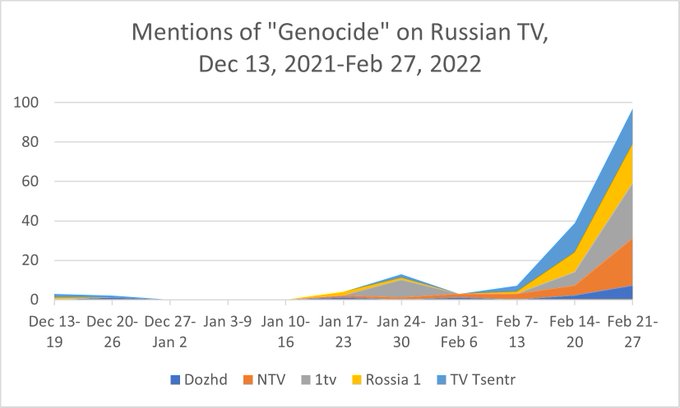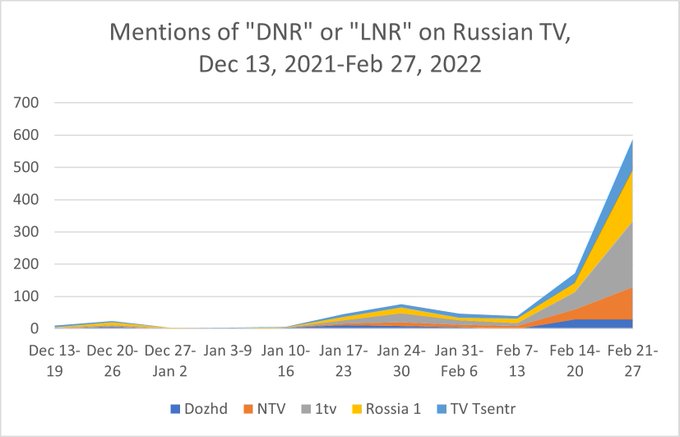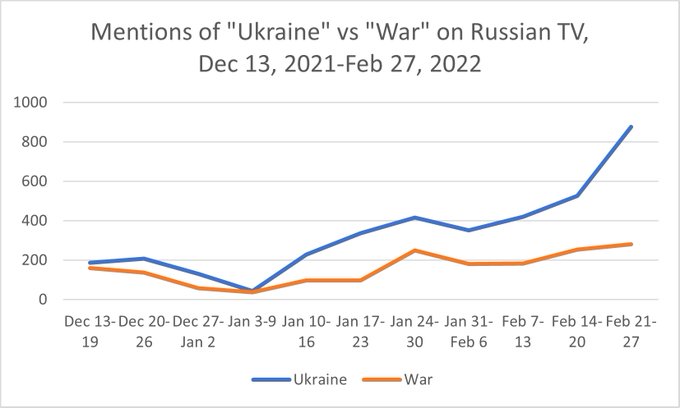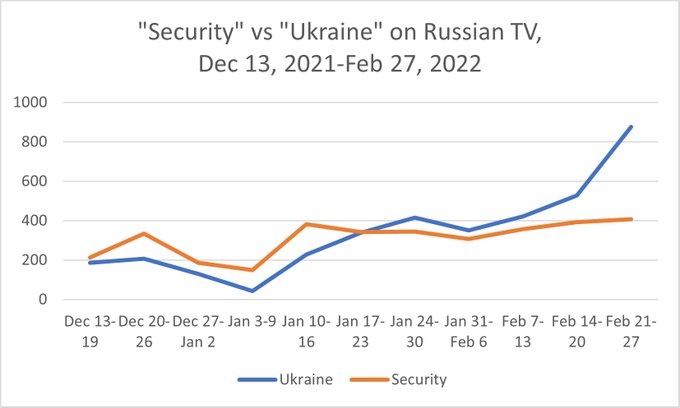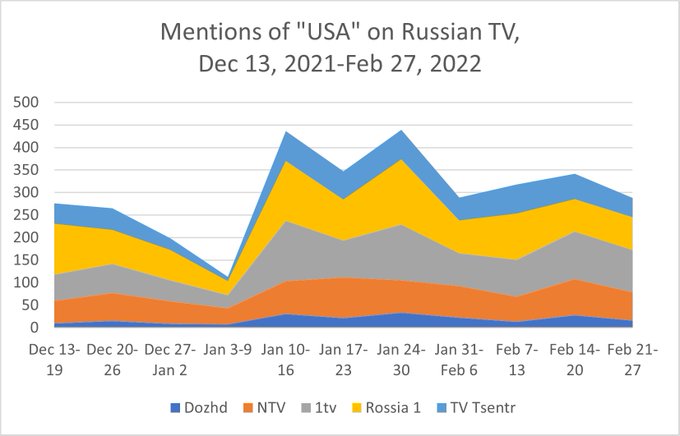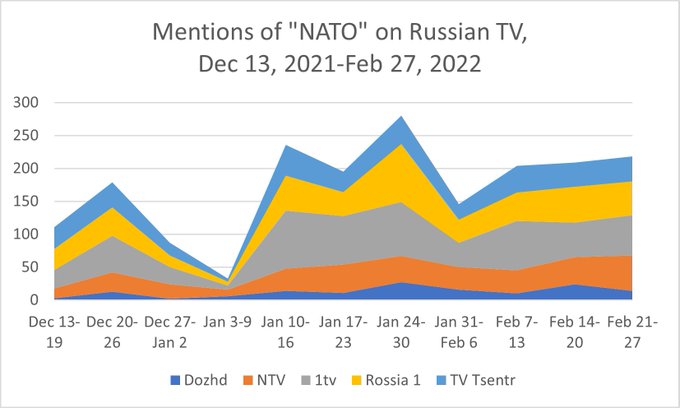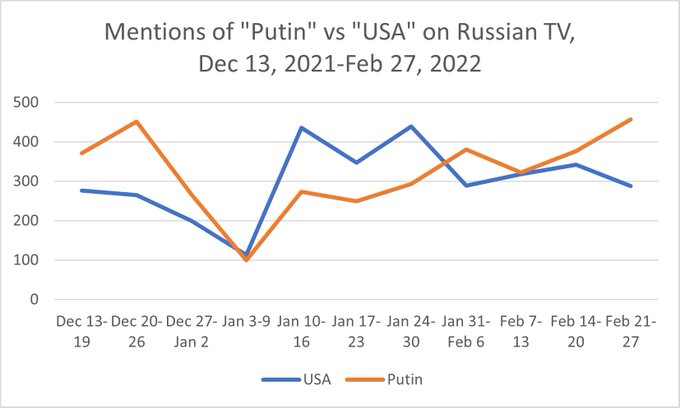This media mobilization follows patterns from Russia's previous wars. Rather than invoking humanitarian concerns regularly on a principled basis, they are invoked instrumentally to justify going to war. This was also the case in 2008 and 2014. 5/14
1
27
174
Replies
Everyone keeps asking what's motivating Russia in this war. Now, TV is the primary means by which most Russians get their news. It's largely state controlled, making it useful to examine justifications for war, so I looked at 5 channels since Putin's December ultimatums. 1/14
17
363
908
All data is from Integrum's tv broadcast transcripts for Dec 13-Feb 27. I included Pervyi Kanal, Rossiia 1, NTV, Moscow's TV Tsentr. Also included is the independent Dozhd channel as a check on whether a topic might have broader resonance & not just Kremlin talking point. 2/14
2
9
106
Let's start w/ Russia's claim about stopping genocide. If really motivated by humanitarian concerns, then you'd expect them to be constantly expressed throughout the crisis. Instead, we see an instrumental mobilization of genocide once the decision to go to war was made. 3/14
2
49
232
Along similar lines, the separatist territories DNR/LNR were hardly mentioned on Russian television from December until it was necessary to prepare the public for going to war. 4/14
1
24
160
Of course, the Kremlin calls this a "special operation" and is threatening to throw Russians in jail for 20 years for using words like "war" or "invasion." So while we see an escalation in mentions of Ukraine from January, mentions of war remain muted by comparison. 6/14
1
24
149
While it was argued by many that the escalation was less about Ukraine than about Russian security concerns, they actually appear to be closely linked with Ukraine emerging more frequently by mid-January. Security is important, but not clearly separable from Ukraine. 7/14
1
7
97
Of course, security can mean a lot of things. For Russia, security involves post-Cold War grievances and emotions concerning its perceived international status including disagreements over whether Russia has gained or lost status since 2014. 8/14
1
5
91
This concern for status recognition feeds a certain obsession with the US as a rival power. Not surprisingly, the US and NATO are mentioned in roughly the same proportions. The ebb and flow of both sets of mentions in lockstep across channels is an artifact of state control. 9/14
1
9
109
In fact, the US is such a fixation that it appears to live rent-free in the collective minds of Russia television broadcasters--so much so that mentions of the US compete even with mentions of Putin. 10/14
1
17
150
But I digress. Summing up:
1. Putin's humanitarian claims are nonsense, if that wasn't already clear.
2. By mid-January, the Russian public was being primed for war.
3. After pushing US/NATO as security concern, Russian tv switched focus to Ukraine only in February. 11/14
2
42
213
This perhaps explains in part the cognitive dissonance following the declaration of war: stunned Russian elites and citizens, alike, didn't really want a war, but they were certain the US/the West would be to blame if war broke out. 12/14
2
16
146
It confirms the war is an existential matter for Putin's regime. Controlling Ukraine is key to the Kremlin's quest for recognition and identity, as is competing with the US/NATO. But what happens when tv coverage no longer keeps up with the information Russians are getting? 13/14
3
26
163
Finally, for anyone wanting to dig into the context and background to Russia's war with Ukraine, check out this virtual issue of
@cpcs_journal
with 11 freely accessible articles: 14/14
6
34
152

